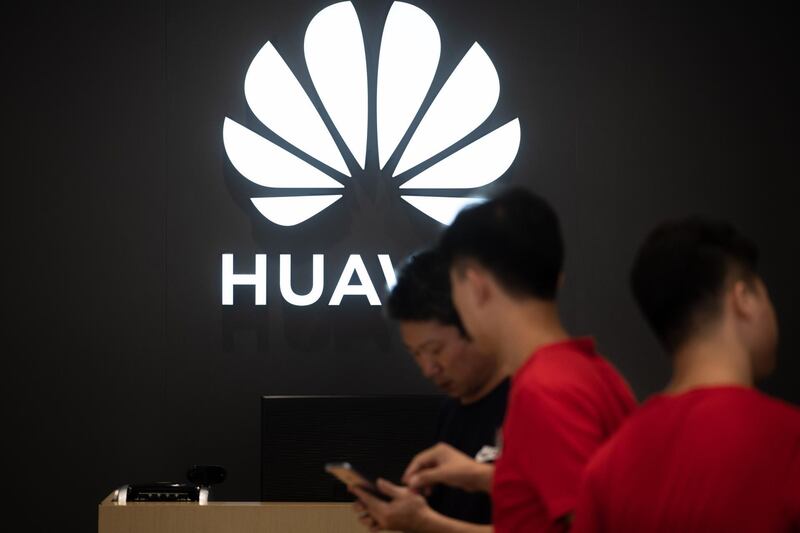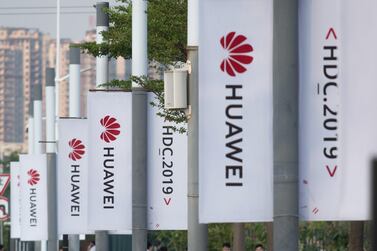Industry experts fear the Chinese tech giant Huawei will be in deep trouble if the Trump administration decides to blacklist the company on Sunday.
Huawei was granted a three-month reprieve on May 21 by President Donald Trump after the United States placed it on a commerce blacklist four days earlier, accusing the Chinese company of espionage and raising questions over the security of its 5G equipment.
The company weathered the storm, and posted earnings $58.34 billion (Dh214bn) in revenue in the first six months of this year - a 23 per cent yearly increase.
Second half of this year is likely to be more of a challenge for Huawei.
"Besides hitting the company's bottom line, it will bring Huawei's possible connections with the Chinese government, and subsequently its security credentials, under fresh and intensifying scrutiny," Matthew Kendall, chief telecoms analyst at The Economist Intelligence Unit, told The National.
Blacklisting could hamper Huawei’s overseas expansion plans that are vital for the company’s future growth, said Mr Kendall, adding, “Blacklisting will only place that growth in jeopardy.”
Last year, Huawei generated nearly half of its revenues from international markets, outside China.
It shipped 117.8 million handsets during the first half, nearly 24.3 million more phones than last year.
“China, like many markets, is reaching saturation point… and there are signs that demand in overseas markets has been affected by the US trade dispute. So it won’t be easier for Huawei,” said Mr Kendall.
A possible bright spot for Huawei is Mr Trump's delay of tariffs on China until December 15 this year so that US shoppers won't be affected in the run-up to Christmas. He may take a similar tact with Huawei.
“We are doing this for the Christmas season, just in case some of the tariffs would have an impact on US consumers. So far, they’ve had virtually none,” the president said.
Industry experts say it won’t be feasible for Huawei to succumb to US pressure at it will threaten its global reputation.
“If Huawei were to admit guilt over the violation of Iran sanctions, fire some executives... and submit to US inspections to allay espionage fears, as it's already done in the UK, Washington might be willing to deal,” wrote Kevin Allison, a director at Eurasia Group.
“But Huawei is China's most important and innovative tech giant. Kowtowing to the US would be humiliating both for company, the country, and in particular Chinese President Xi Jinping. There is no sign yet that Huawei or China are willing to go down that path,” added Mr Allison.








